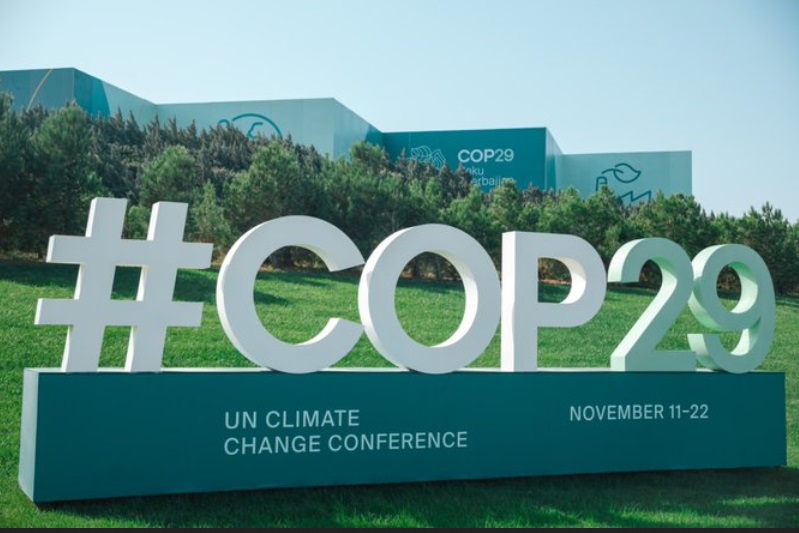There is no time for indifference today
As the world confronts the escalating crisis of climate change, Pope Francis has once again used his influential voice to urge global leaders to prioritise the well-being of humanity and the preservation of our shared planet.
Nov 22, 2024

By Patricia Pereira
As the world confronts the escalating crisis of climate change, Pope Francis has once again used his influential voice to urge global leaders to prioritise the well-being of humanity and the preservation of our shared planet. In a message delivered on November 13 by Cardinal Pietro Parolin at COP29 in Baku, Azerbaijan, the Pope emphasised the critical need for a united global response, especially in the face of growing disillusionment with multilateral institutions and the rise of dangerous isolationist trends.
Pope Francis’ message comes at a critical juncture. The absence of key world leaders — such as US President Joe Biden, Chinese President Xi Jinping, French President Emmanuel Macron, and Brazil’s Luiz Inacio Lula da Silva — from the summit added to the uncertainty surrounding international climate negotiations. Yet, the Pope’s message cut through this uncertainty with clarity and conviction: the time for inaction has passed. “Selfishness — individual, national, and of power groups — feeds a climate of mistrust and division,” the Pope warned, highlighting the pressing need for collective action in an increasingly interdependent world.
This lack of unity is especially troubling when weighed against the overwhelming scientific evidence demanding urgent action on climate change. Pope Francis, a long-standing advocate for environmental justice through his landmark encyclical Laudato Si’, once again reminded the global community of its responsibility. “The scientific data available to us do not allow any further delay,” he cautioned, underscoring the need to limit global warming to 1.5°C by achieving net-zero CO2 emissions by the end of the 2030s. This goal, he stressed, is not just an environmental concern but a moral imperative tied to humanity’s survival.
The Pope also drew a direct connection between environmental degradation and global peace, emphasising that failing to protect the planet exacerbates inequalities and fuels conflict. His call for action is especially poignant in light of the growing political and social divisions around the world. As nations increasingly turn inward, prioritising short-term gains and self-interest, Pope Francis called for a renewed sense of global solidarity. “We should act and live as members of one family inhabiting the same interconnected global village,” he reminded world leaders, pointing to the shared fate of all humanity.
One of the most pressing issues at COP29 is financing climate action, particularly for developing nations that suffer the worst impacts of climate disasters despite contributing the least to the problem. The Pope reiterated his longstanding plea for the cancellation of debts for the world’s poorest countries, a point he previously raised in his papal bull Spes Non Confundit (Hope Does Not Disappoint). He framed debt cancellation not as an act of charity but as a matter of justice. “There is a true ‘ecological debt’ from the North to the South,” the Pope declared, drawing attention to the disproportionate use of natural resources by wealthier nations over the centuries.
This concept of ecological debt is closely linked to global trade imbalances and the exploitation of resources, which have left many poorer nations vulnerable to both environmental and economic crises. In his message, the Pope called for a “new international financial architecture” that would enable all countries — especially those most vulnerable to climate change — to pursue lowcarbon development pathways that respect human dignity and promote equitable growth. Such a system, he argued, is essential for addressing the deep-rooted inequalities that fuel the climate crisis.
Pope Francis’ message to COP29 participants was not just a call for justice but also a challenge to the complacency that often paralyses meaningful action on climate change. “We cannot wash our hands of it, with distance, with carelessness, with disinterest,” he said, urging world leaders to confront the mechanisms of self-justification that allow inaction to persist. His appeal was particularly aimed at those who downplay the urgency of climate change or delay critical action for political or economic reasons.
Pope Francis offered a powerful reminder of the gravity of the climate crisis, warning, “There is no time for indifference today.” He stressed that we cannot absolve ourselves of this responsibility, urging world leaders and individuals alike to confront the self-deception that allows us to ignore the problem. The true challenge of our century, he suggested, is not only to mitigate climate change but to overcome the complacency that stalls meaningful action. As climate disasters become more frequent and severe, the Pope’s message serves as a moral wake-up call: short-term interests can no longer take precedence over the long-term survival of our planet. His call to action at COP29 challenges each of us — whether world leader or ordinary citizen — to take responsibility for the future of our common home.







Total Comments:0